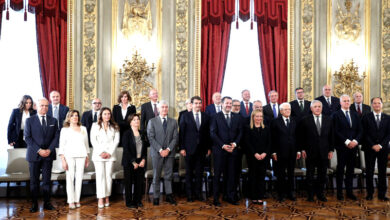Toyota, which has been reluctant to adopt electric vehicles, claims that it offers customers options.

Investors are upset with Toyota Motor Corporation for how slowly it is adopting battery electric vehicles. On Wednesday, the company said it needs to offer a variety of options to meet the needs of the different places and people it serves.
During the company’s annual general meeting, executives at the world’s largest automaker in terms of sales talked about a number of issues, such as the company’s plans for electrification, how the next CEO will be chosen, and the chip shortage that is still going on.
Toyota was once a favourite among environmentalists because of the hybrid Prius model that it popularised more than two decades ago. However, the company has come under fire from some investors because it has not phased out gasoline-powered cars and because it has lobbied on climate policy.
In response to questions posed by the Danish pension fund AkademikerPension, Toyota’s Chief Technology Officer Masahiko Maeda stated during the meeting, “The goal is carbon neutrality.” The fund also asked Toyota to stop lobbying in ways that would slow down the switch to BEVs.
In spite of this, “customers need to choose,” as Maeda put it, in order to make electric cars, including hybrids, more popular. According to him, an assortment of choices has to be provided, and the manufacturer of the vehicle shouldn’t restrict those choices.
Toyota argues that hybrids still make sense in markets where infrastructure isn’t ready to support a faster move to battery electric vehicles (BEVs). The company is exploring the viability of green fuels for internal combustion engine cars, including hydrogen, and hybrids still make sense in markets where infrastructure isn’t ready to support a faster move to BEVs.
The company made the commitment to invest 8 trillion yen ($60 billion) by the year 2030 to electrify its vehicles, with the intention of devoting half of that sum to the development of fully electric vehicles. But it thinks that by the end of the decade, only 3.5 million of these cars will be sold each year, which is about a third of how many cars are sold each year now.
Only one month ago, Toyota began rolling out its first mass-produced BEVs domestically, although they are only available for lease. Despite this, gasoline-electric hybrid vehicles continue to be far more popular than BEVs in Japan.
Next CEO
When asked about succession planning, Akio Toyoda, the chief executive officer of Toyota and the person who has led the company for the past 13 years, responded that he was “thinking about timing and the selection of a successor.”
There has been no word from the company that Toyoda intends to step down from his position as president.
Toyoda, who is 66 years old and the grandson of the company’s founder, Kiichiro Toyoda, guided Toyota through a difficult time when sales of Toyota vehicles fell due to the recall of millions of vehicles, and the company reported losses of billions of dollars.
He continued by saying, “If I were to choose a successor, it would be someone who is familiar with the guiding principles of the organisation.”
Toyoda has been focusing more of his attention on Toyota’s younger executives and has reduced the number of senior roles as part of his efforts to change the company’s culture.
In the year 2020, he promoted long-time employees of the company, Maeda and Kenta Kon, to leadership positions. At the time, they were both 51 years old.
Despite the fact that it outsold its nearest competitor, Volkswagen (ETR: VOWG p), by a significant margin in 2021, Toyota has been forced to reduce production on multiple occasions this year as a result of a worldwide shortage of chips.
Kazunari Kumakura, who is in charge of buying for the company, said on Wednesday that the company expects the chip shortage to continue, even though there are signs of a recovery.





